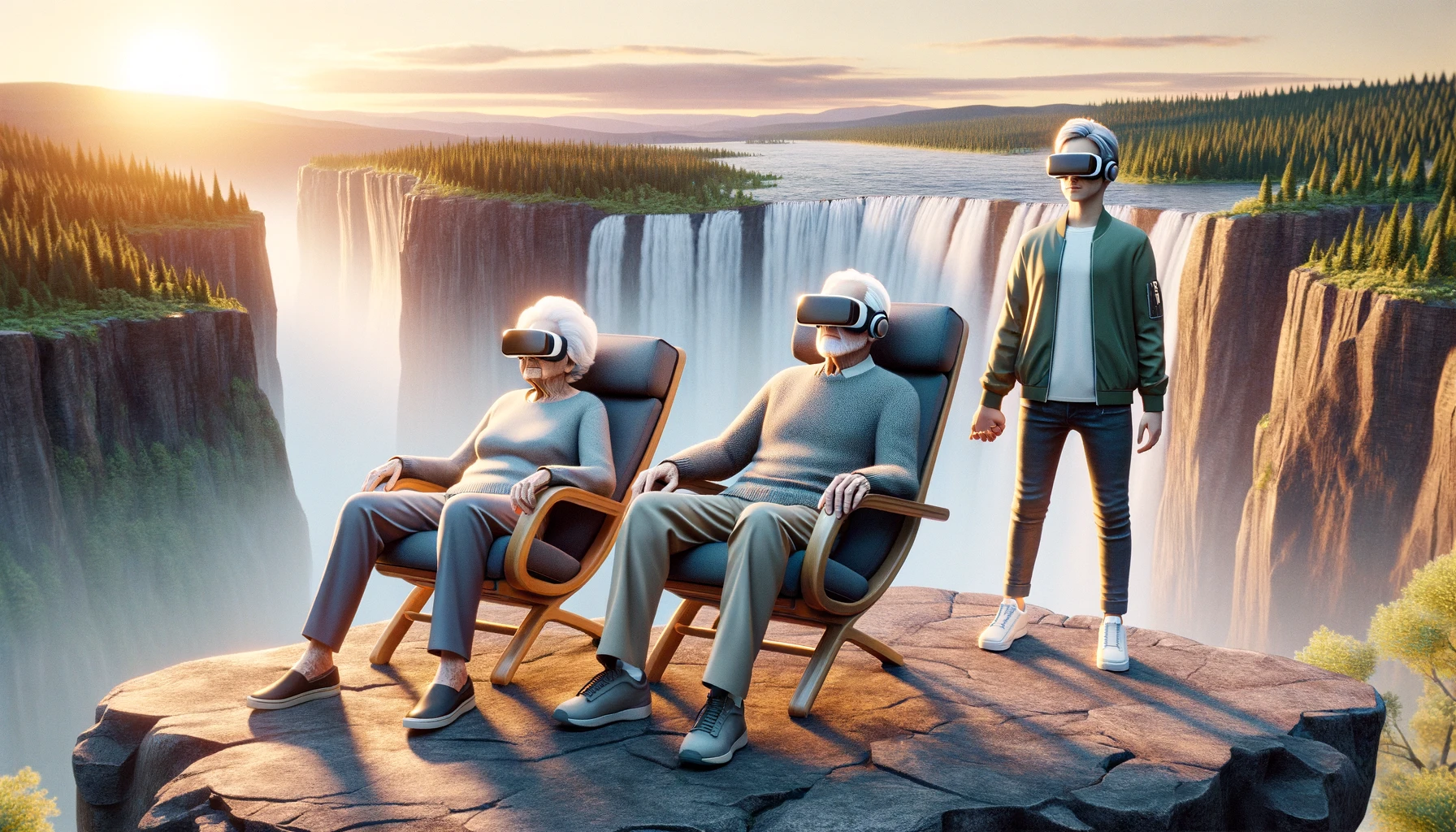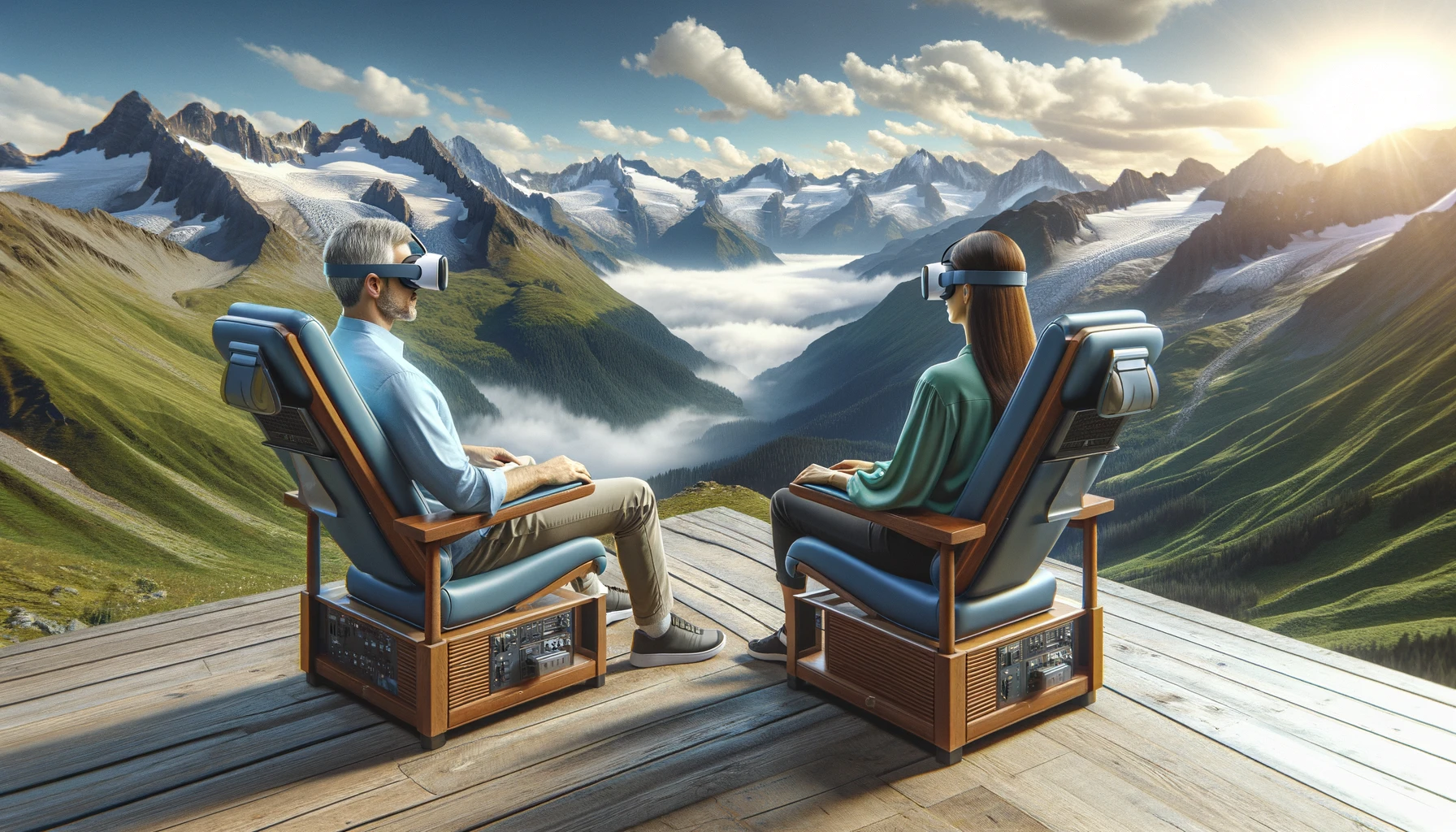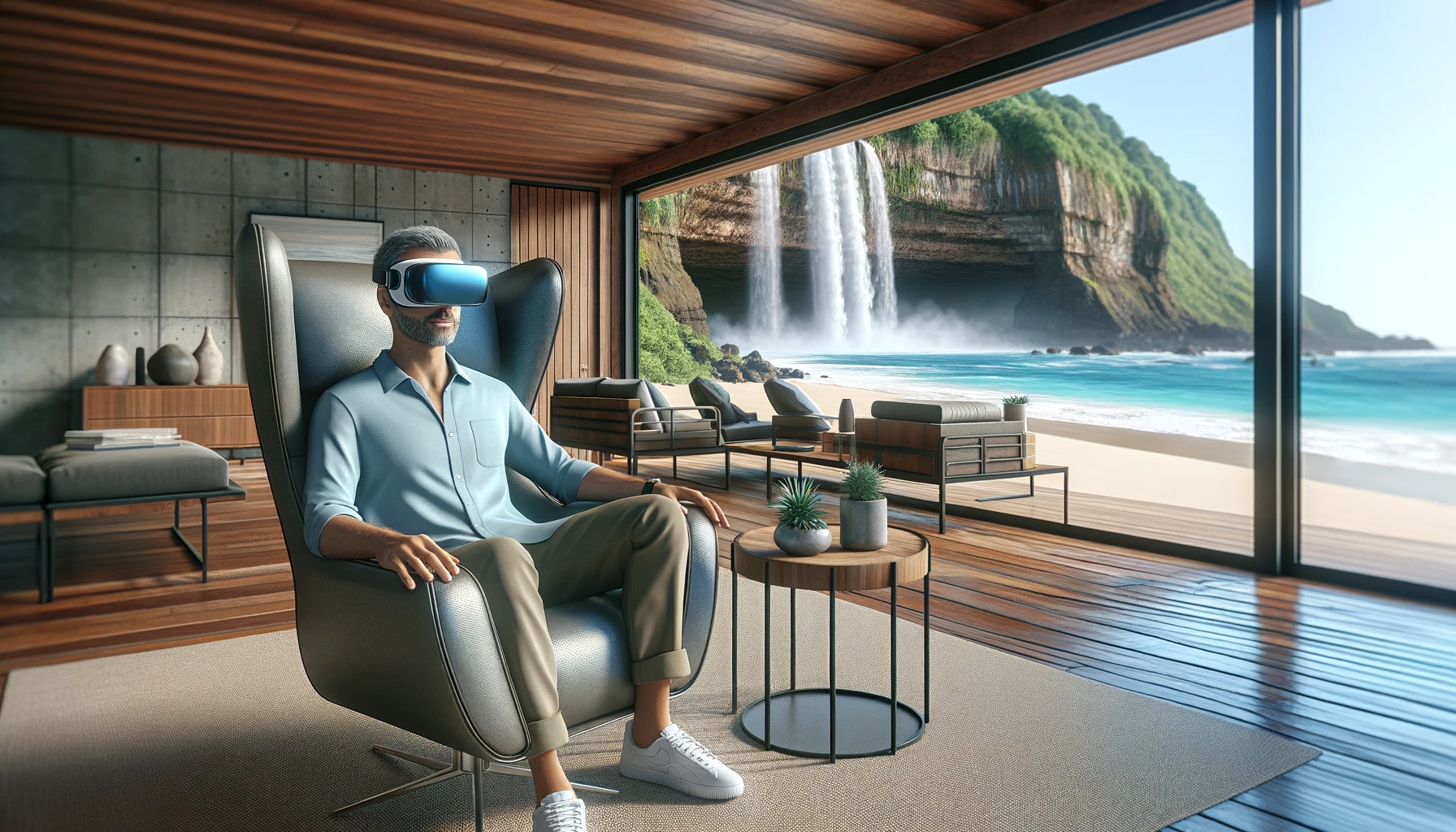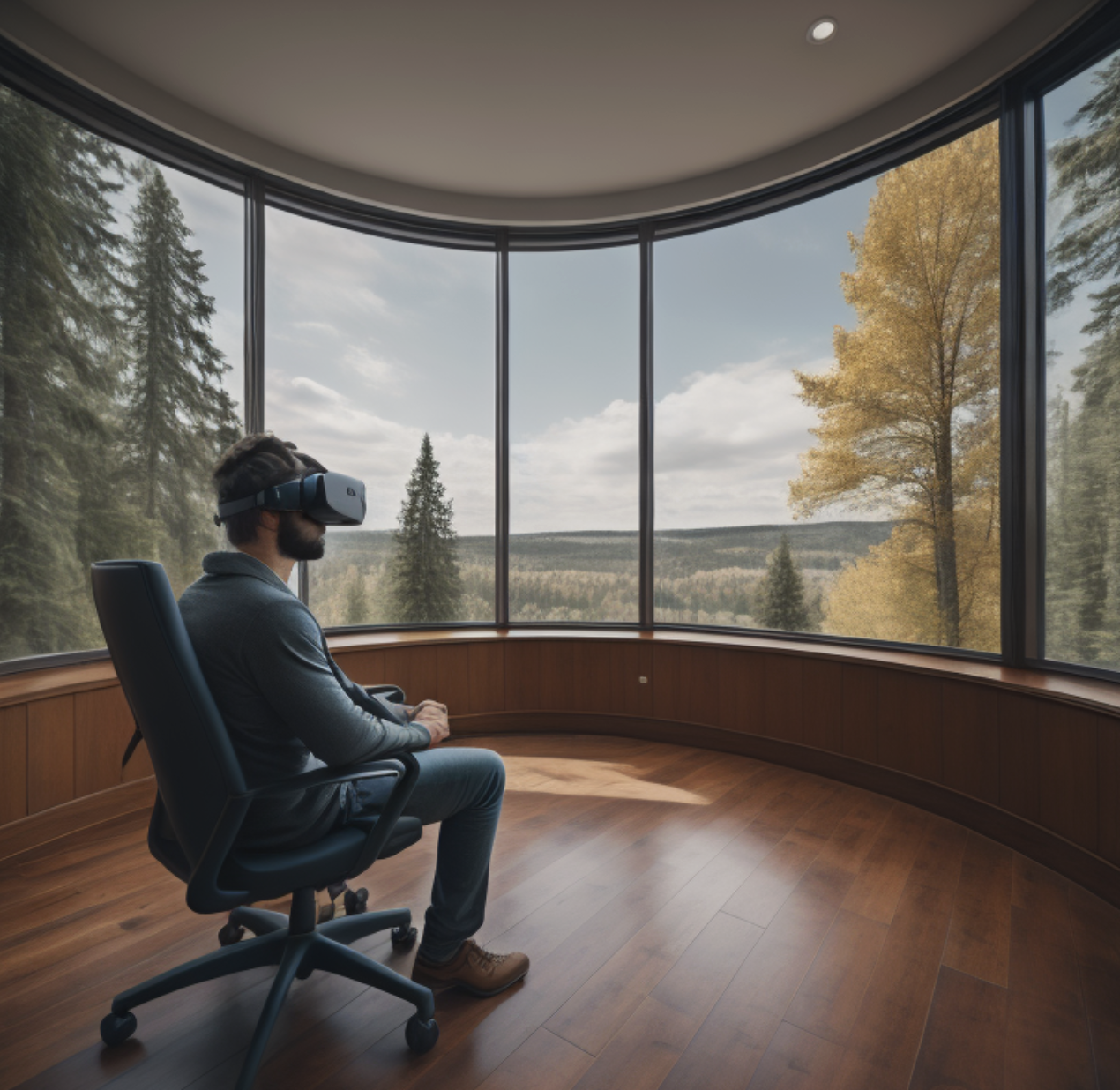Stress Reduction in the Virtual World: How VR Helps Manage Everyday Anxieties
Embracing Virtual Reality for Stress Management In our fast-paced, constantly connected world, managing stress is more crucial than ever....
2 min read
 Nerdle
:
May 1, 2024 6:15:42 AM
Nerdle
:
May 1, 2024 6:15:42 AM

Welcome to VRenity.com, where we explore the cutting-edge of virtual reality technology and its transformative impacts on therapy. Today, we delve into how artificial intelligence (AI) immersive therapy treatments, employing visual enhancements, 8-D sound, and advanced brain-mapping technology, are revolutionizing patient care.
In recent years, AI has transcended its traditional boundaries, integrating deeply with virtual reality (VR) to create immersive therapy environments that provide more than just visual stimuli. By combining visual VR environments with 8-D sound and brain-mapping technologies, therapists can create highly personalized therapy sessions that adapt in real-time to the patient's emotional and cognitive responses. This approach is proving to be a game-changer in treating a range of conditions, from PTSD to anxiety, and even chronic pain.
Visual immersion in VR therapy involves creating a digital environment that is not only visually engaging but also therapeutically beneficial. For example, VR can simulate tranquil natural environments, which have been shown to reduce stress and anxiety in patients. The depth and realism added by AI technology help in modifying these environments in real-time, based on the patient's feedback captured through brain-mapping sensors. This dynamic adjustment helps maintain the optimal level of engagement and therapeutic effectiveness.
The incorporation of 8-D audio in VR therapy is revolutionary. This technology allows sounds to be heard from various directions and distances, mimicking real-life experiences. In therapeutic settings, 8-D sound can significantly enhance the immersion of a VR session, making the therapy more effective. For instance, patients dealing with anxiety can experience a calming scenario where the sound shifts according to their movement, enhancing the realism of the session and thereby increasing the therapeutic benefits.
A Key Innovator Brain-mapping technology in VR therapy uses real-time neural feedback to tailor therapeutic experiences. By monitoring brain activity, AI algorithms can adjust the virtual environment and sound settings to best suit the patient’s current state. This personalized approach ensures that the therapy sessions are always tuned to the optimal state for emotional and cognitive improvement.
Recent studies indicate that AI-driven immersive therapy can lead to significant improvements in patient outcomes. For example, a controlled study demonstrated that patients with PTSD experienced a 40% reduction in symptoms after a series of VR therapy sessions enhanced with AI and brain-mapping technology^[1]. This is a stark improvement over traditional therapy methods, which typically see a 25% reduction in symptoms.
The future of AI immersive therapy is incredibly promising. Ongoing developments in AI, VR, and neuroscience are expected to enhance the effectiveness and accessibility of these therapies. As these technologies continue to evolve, we anticipate even more innovative approaches to emerge, making therapy more engaging, less stigmatizing, and more widely accessible.
AI immersive therapy treatments using VR, 8-D sound, and brain-mapping technology represent a significant advancement in therapeutic practices. By creating more engaging, personalized, and effective therapy sessions, these technologies are not just improving outcomes but are also transforming the landscape of mental health treatment. For those interested in the integration of AI and VR in therapy, VRenity.com continues to offer insights and updates on these exciting advancements. Stay tuned for more innovative solutions that promise to enhance patient care in profound ways.
Sources
^[1]: "Study on the Efficacy of AI-Enhanced VR Therapy for PTSD," Journal of Virtual Reality and Psychological Studies, 2023.

Embracing Virtual Reality for Stress Management In our fast-paced, constantly connected world, managing stress is more crucial than ever....

In recent years, virtual reality (VR) has transcended the boundaries of entertainment, asserting itself as a transformative tool in the field of...

In recent years, the intersection of artificial intelligence (AI) and immersive technologies has opened upnew frontiers in entertainment, education,...